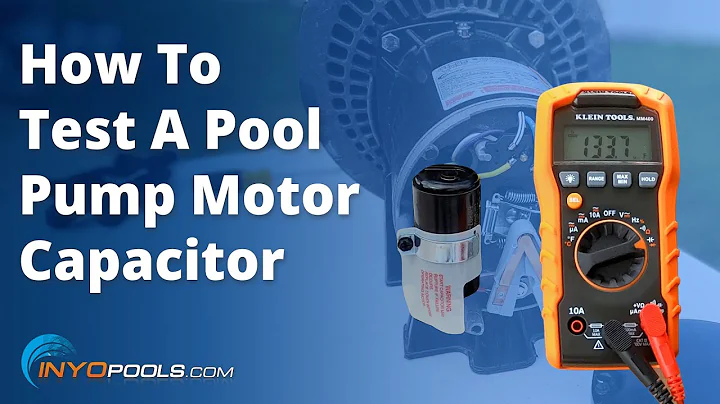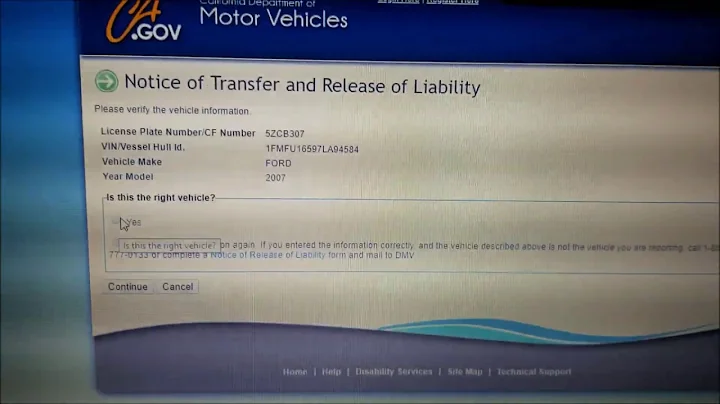The Downside of Portable Air Conditioners: Why You Should Avoid Them
Table of Contents:
- Introduction
- The Basics of Air Conditioning
- How Air Conditioners Work
- The Components of an Air Conditioner
4.1 The Compressor
4.2 The Condenser
4.3 The Evaporator
- Window Units vs Portable Air Conditioners
5.1 Efficiency
5.2 Noise Levels
5.3 Size and Space Requirements
- Single-Hose vs Dual-Hose Portable Air Conditioners
- The Limitations of Portable Air Conditioners
- The Advantages of Window Units
- New Trends in Air Conditioning Technology
9.1 Propane as a Refrigerant
9.2 R32 Refrigerant
- Conclusion
🌬️ The Pros and Cons of Air Conditioners: Which is Best for You?
Introduction
Air conditioners have become a staple in many households, providing relief from the sweltering heat of summers. However, with the emergence of portable air conditioners, it begs the question: are they really a better alternative to traditional window units? In this article, we will delve into the world of air conditioning, exploring how these cooling devices work and the pros and cons of both window units and portable air conditioners. By the end, you'll have a better understanding of which option is best suited for your needs.
The Basics of Air Conditioning
Before we compare window units and portable air conditioners, let's first understand the fundamental principles of air conditioning. At its core, air conditioning is the process of collecting and concentrating heat energy to move it from one place to another. The cold air produced by an air conditioner is, in fact, ordinary air that has had its heat energy extracted.
How Air Conditioners Work
To grasp how air conditioners work, imagine a closed loop system comprising three essential components: the compressor, the condenser, and the evaporator. The compressor squeezes a gas refrigerant into a small space, increasing its pressure and temperature. The high-pressure gas then flows into the condenser, a heat exchanger designed to cool the gas down rapidly. The refrigerant, now a high-pressure liquid, passes through a metering device and enters the evaporator. Here, the pressure drops, allowing the refrigerant to evaporate and absorb heat energy from the room. The result is a cooler environment. The refrigerant cycle repeats as the liquid refrigerant re-enters the compressor for compression once again.
The Components of an Air Conditioner
Let's take a closer look at the three primary components of an air conditioner: the compressor, the condenser, and the evaporator.
-
The Compressor: The compressor plays a crucial role in the refrigeration cycle. It compresses the refrigerant gas, increasing its temperature and pressure.
-
The Condenser: The condenser is a heat exchanger that cools the high-pressure gas down, allowing it to condense into a liquid form. This process releases heat energy into the surrounding air.
-
The Evaporator: The evaporator is another heat exchanger, but this time, it operates at a lower pressure. As the refrigerant flows through the evaporator, it absorbs heat energy from the room, resulting in a cooler environment.
Window Units vs Portable Air Conditioners
Now that we understand the basics of air conditioning, let's compare window units and portable air conditioners to determine their advantages and disadvantages.
-
Efficiency: When it comes to efficiency, window units have the upper hand. Portable air conditioners, especially single-hose units, are significantly less efficient due to the air exchange mechanism. They not only cool the air but also pull it out of the room, creating a low-pressure environment. This, in turn, leads to hot air from outside seeping into the room, reducing overall efficiency.
-
Noise Levels: Air conditioners can be noisy, and this is primarily due to the compressors and fans. Window units tend to be quieter because the compressor and one of the fans are located outside, providing sound insulation. On the other hand, portable air conditioners have both the compressor and condenser fan inside the room, resulting in a significant increase in noise levels, especially when actively cooling.
-
Size and Space Requirements: While window units require a portion of the window to be blocked, they do not take up valuable floor space. Portable air conditioners, however, are bulkier and need to be placed away from obstructions to allow for proper air circulation. This may require rearranging furniture or finding suitable locations for the unit's hose.
Single-Hose vs Dual-Hose Portable Air Conditioners
Within the realm of portable air conditioners, there are single-hose and dual-hose units. Single-hose units draw indoor air to cool the condenser and then expel it outside, resulting in a loss of cooled air. On the other hand, dual-hose units intake outside air to cool the condenser and vent it back outside, maintaining a more efficient cooling cycle. While dual-hose units are less flexible and may not be suitable for certain window types, they offer improved efficiency.
The Limitations of Portable Air Conditioners
While portable air conditioners provide convenience and flexibility, they come with limitations compared to window units. The hot air expelled through the hose can increase the temperature in the room, leading to reduced cooling efficiency and energy consumption. Additionally, the hose itself can become hot and may need insulation to prevent heat from radiating back into the room. Moreover, portable air conditioners require proper venting to function effectively, making them less suitable for rooms without access to a window or exterior vent.
The Advantages of Window Units
Window units, despite their drawbacks of obstructing views and taking up window space, offer several advantages over portable air conditioners. Firstly, window units are more energy-efficient, providing optimal cooling performance. They also benefit from lower noise levels since important components are located outside. Additionally, window units require no floor space and offer easy installation compared to portable units.
New Trends in Air Conditioning Technology
The air conditioning industry continually evolves, seeking energy-efficient and environmentally friendly alternatives. Propane, also known as R290, is becoming a popular refrigerant due to its abundance and minimal environmental impact. While servicing units with propane refrigerant can be challenging due to its flammability, it presents opportunities for smaller units. Another refrigerant gaining attention is R32, which, despite being a flammable refrigerant like propane, offers improved efficiency and performance.
Conclusion
In conclusion, while portable air conditioners offer convenience and flexibility, they are generally less efficient and noisier compared to window units. Window units are more energy-efficient, take up less space, and provide better cooling performance. However, portable air conditioners can be a suitable option for specific situations where window units are not feasible or desirable. It is essential to assess your cooling needs and consider factors such as efficiency, noise levels, and space requirements before making a decision.
Highlights:
- Air conditioners collect and concentrate heat energy to move it from one place to another.
- Portable air conditioners are less efficient and noisier compared to window units.
- Window units provide better cooling performance, energy efficiency, and take up less space.
- Single-hose portable air conditioners are inherently less efficient than dual-hose units.
- New trends in air conditioning technology include the use of environmentally friendly refrigerants like propane and R32.
FAQs:
- Can I use a portable air conditioner without a window?
- Portable air conditioners generally require proper venting through a window or exterior vent for optimal performance.
- Are portable air conditioners more energy-efficient than window units?
- No, window units are generally more energy-efficient compared to portable air conditioners.
- Do dual-hose portable air conditioners cool better than single-hose units?
- Yes, dual-hose portable air conditioners maintain better cooling efficiency by preventing the loss of cooled air.
- Are window units quieter than portable air conditioners?
- Yes, window units tend to be quieter because important components like the compressor and condenser fan are located outside.
- Can I use propane refrigerant in larger air conditioning units?
- Propane refrigerant is more suitable for smaller units due to its flammability and challenges in servicing larger units.







